Rafaela Schroeder
Low-Complexity Near-Field Channel Estimation for Hybrid RIS Assisted Systems
Apr 30, 2024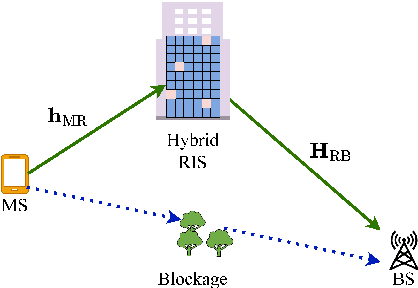
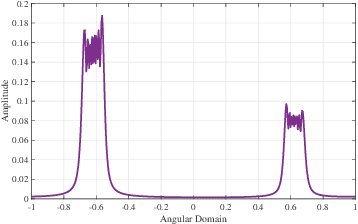
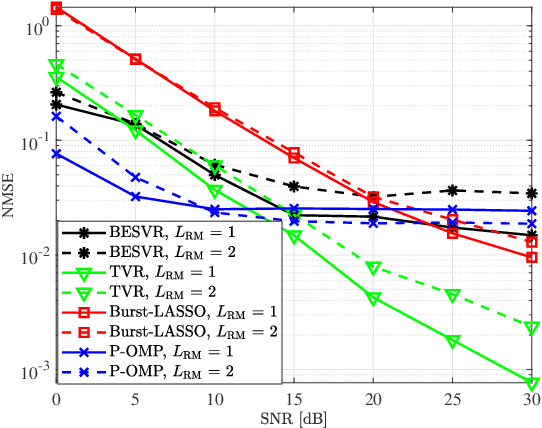
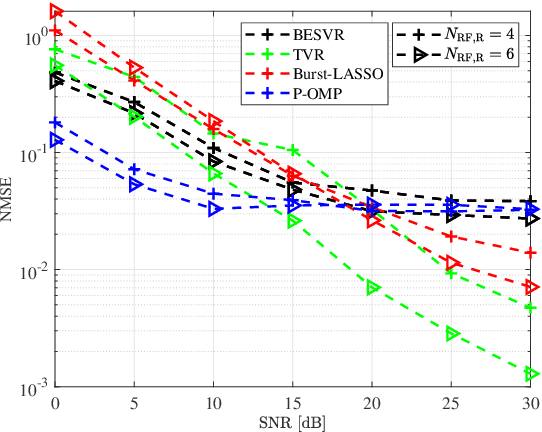
Abstract:We investigate the channel estimation (CE) problem for hybrid RIS assisted systems and focus on the near-field (NF) regime. Different from their far-field counterparts, NF channels possess a block-sparsity property, which is leveraged in the two developed CE algorithms: (i) boundary estimation and sub-vector recovery (BESVR) and (ii) linear total variation regularization (TVR). In addition, we adopt the alternating direction method of multipliers to reduce their computational complexity. Numerical results show that the linear TVR algorithm outperforms the chosen baseline schemes in terms of normalized mean square error in the high signal-to-noise ratio regime while the BESVR algorithm achieves comparable performance to the baseline schemes but with the added advantage of minimal CPU time.
Two-Stage Channel Estimation for Hybrid RIS Assisted MIMO Systems
Jul 15, 2021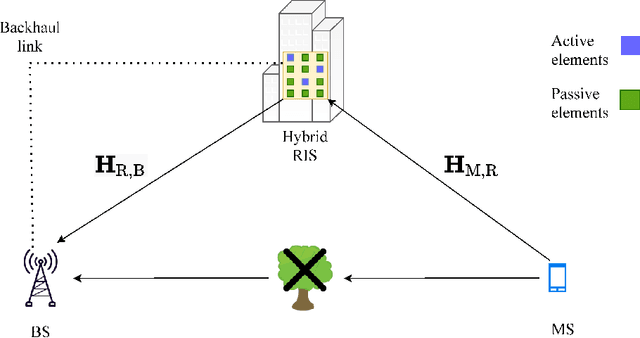
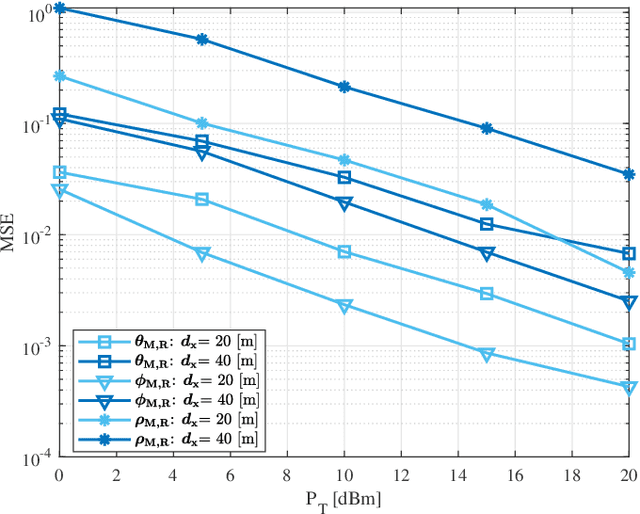
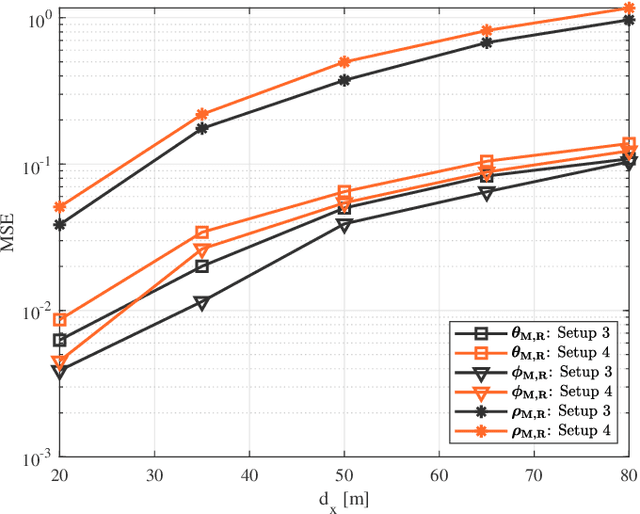
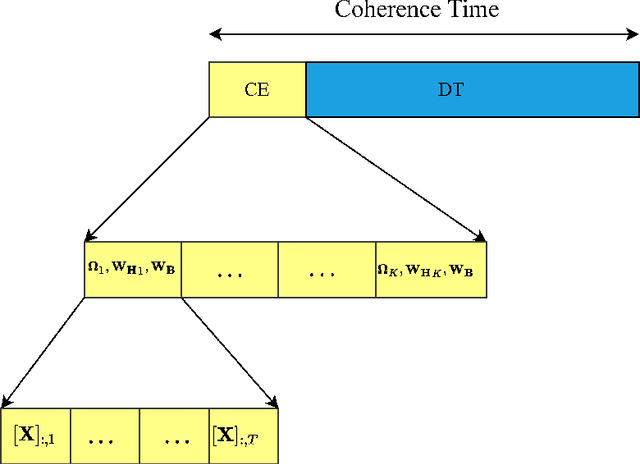
Abstract:Reconfigurable intelligent surfaces (RISs) have been proposed as a key enabler to improve the coverage of the signals and mitigate the frequent blockages in millimeter wave (mmWave) multiple-input multiple-output (MIMO) communications. However, the channel state information (CSI) acquisition is one of the major challenges for the practical deployment of the RIS. The passive RIS without any baseband processing capabilities brings difficulty on the channel estimation (CE), since the individual channels or the cascaded one can be estimated only at base station (BS) via uplink training or mobile station (MS) via downlink training. In order to facilitate the CSI acquisition, we focus on the hybrid RIS architecture, where a small number of elements are active and able to receive and process the pilot signals at the RIS. The CE is performed in two stages by following the atomic norm minimization to recover the channel parameters, i.e., angles of departure (AoDs), angles of arrival (AoAs), and propagation path gains. Simulation results show that the proposed scheme can outperform the passive RIS CE under the same training overhead. Furthermore, we also study the theoretical performance limits in terms of mean square error (MSE) via Cram\'er-Rao lower bound (CRLB) analyses.
Channel Estimation for Hybrid RIS Aided MIMO Communications via Atomic Norm Minimization
Jun 21, 2021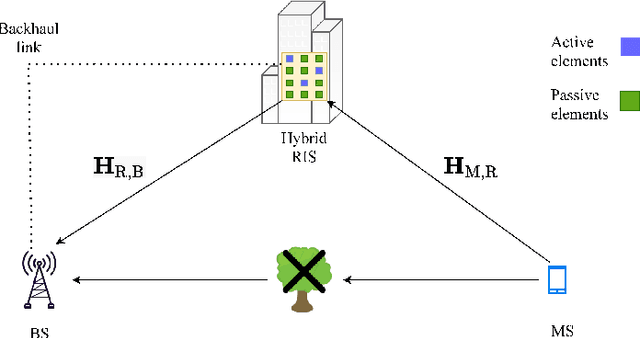
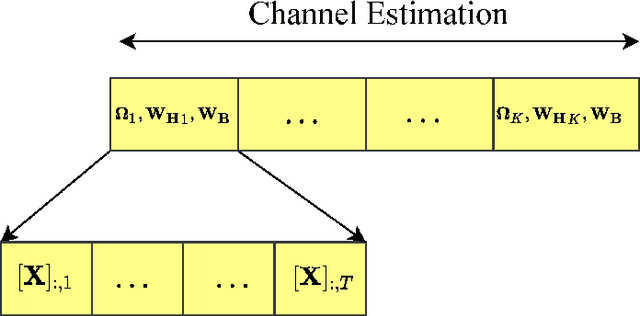
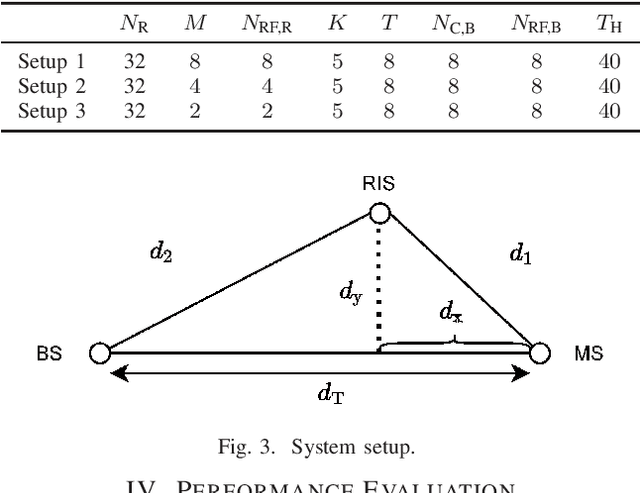
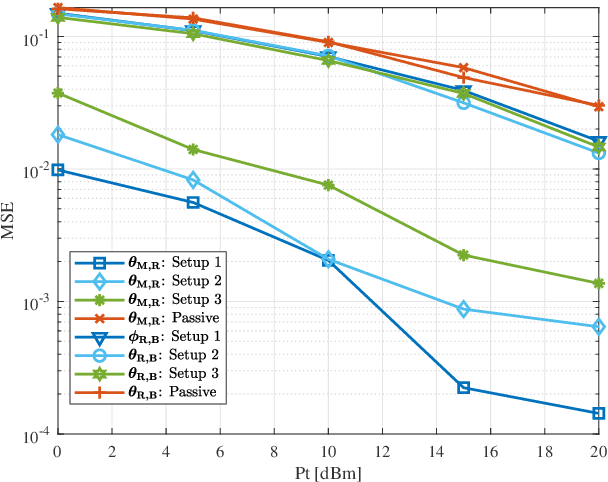
Abstract:Reconfigurable intelligent surfaces (RISs) have been introduced as a remedy for mitigating frequent blockages in millimeter wave (mmWave) multiple-input multiple-output (MIMO) communication networks. However, perfect or nearly perfect channel state information (CSI) is fundamental in order to achieve their full potential. Traditionally, an RIS is fully passive without any baseband processing capabilities, which poses great challenges for CSI acquisition. Thus, we focus on the hybrid RIS architecture, where a small portion of RIS elements are active and able to processing the received pilot signals for estimating the corresponding channel. The channel estimation (CE) is done by resorting to off-the-grid compressive sensing technique, i.e., atomic norm minimization, for exacting channel parameters through two stages. Simulation results show that the proposed scheme outperforms the passive RIS CE under the same training overhead.
Channel Estimation and Hybrid Architectures for RIS-Assisted Communications
Apr 14, 2021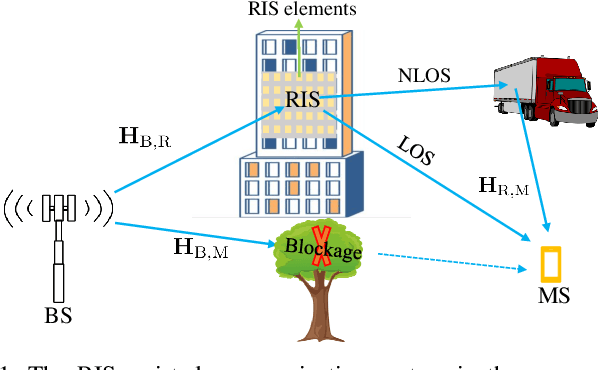
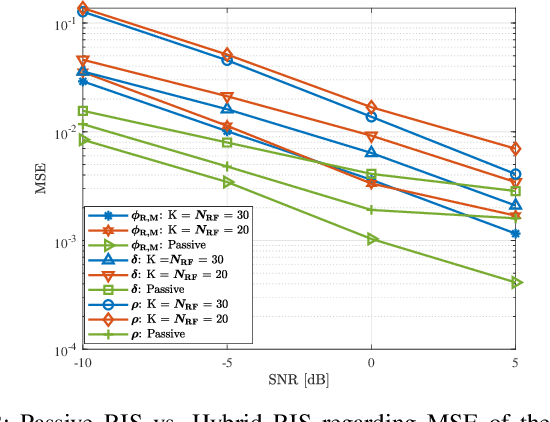
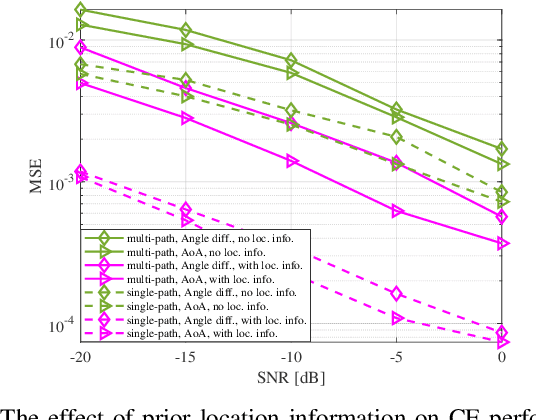
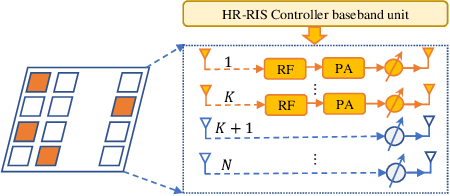
Abstract:Reconfigurable intelligent surfaces (RISs) are considered as potential technologies for the upcoming sixth-generation (6G) wireless communication system. Various benefits brought by deploying one or multiple RISs include increased spectrum and energy efficiency, enhanced connectivity, extended communication coverage, reduced complexity at transceivers, and even improved localization accuracy. However, to unleash their full potential, fundamentals related to RISs, ranging from physical-layer (PHY) modelling to RIS phase control, need to be addressed thoroughly. In this paper, we provide an overview of some timely research problems related to the RIS technology, i.e., PHY modelling (including also physics), channel estimation, potential RIS architectures, and RIS phase control (via both model-based and data-driven approaches), along with recent numerical results. We envision that more efforts will be devoted towards intelligent wireless environments, enabled by RISs.
 Add to Chrome
Add to Chrome Add to Firefox
Add to Firefox Add to Edge
Add to Edge